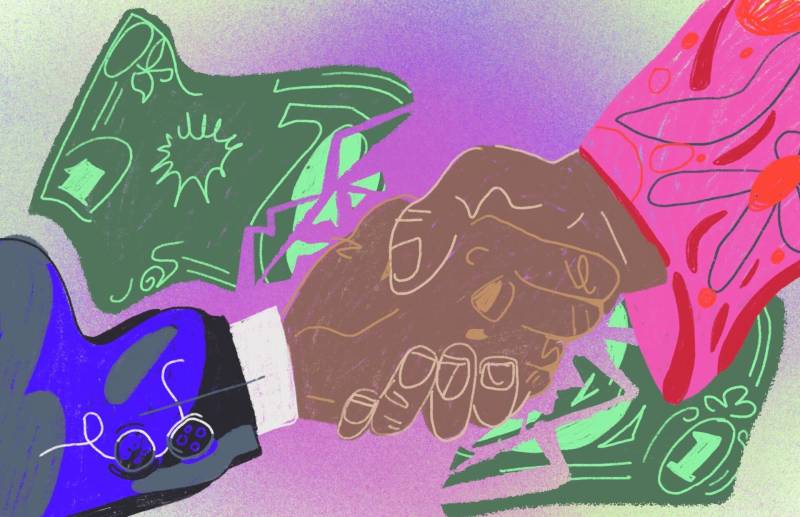A social justice–focused arts initiative in Oakland has accused its fiscal sponsor of misappropriating its budget, leaving its staff without pay since August and without health insurance since September.
Artist and curator Ashara Ekundayo leads Artist As First Responder, which organizes exhibits and events that support Black and Indigenous artists and other artists of color in Oakland, with a focus on community healing. Her organization is fiscally sponsored by Marcus Foster Education Institute (MFEI), a renowned nonprofit founded 50 years ago by the Oakland Unified School District’s first Black superintendent, that gives out student scholarships and sponsors philanthropic initiatives.
As fiscal sponsor, MFEI takes on accounting and administrative duties for Artist As First Responder for a fee, a common arrangement in the nonprofit world that allows Artist As First Responder to apply for grants without forming a 501(c)(3). The purpose is to free up Artist As First Responder’s small team — consisting of Ekundayo and her sons, artists and community organizers Christian Walker and Ietef Vita, and two independent contractors — to work on cultural programming. Ekundayo raises money for Artist As First Responder, and MFEI is required to keep that money separate from their own operating budget and pay Artist As First Responder staff as employees.
After five years of fiscal sponsorship, the arrangement came to an abrupt halt in early September when Ekundayo discovered that a $25,000 grant hadn’t been disbursed to Vita. Ekundayo said she made calls to MFEI Executive Director Alicia Dixon and Finance Manager Meiko McDonald, who told her that they no longer worked at the organization, and that the remainder of Artist As First Responder’s approximately $375,000 annual budget was gone.
Ekundayo believes that MFEI knowingly misappropriated restricted funds intended for Artist As First Responder and violated their fiscal sponsorship contract. And her lawyer, Brooke Oliver, said the situation suggests more widespread financial mismanagement at MFEI, and could mean that MFEI violated California nonprofit public benefit corporation law.



